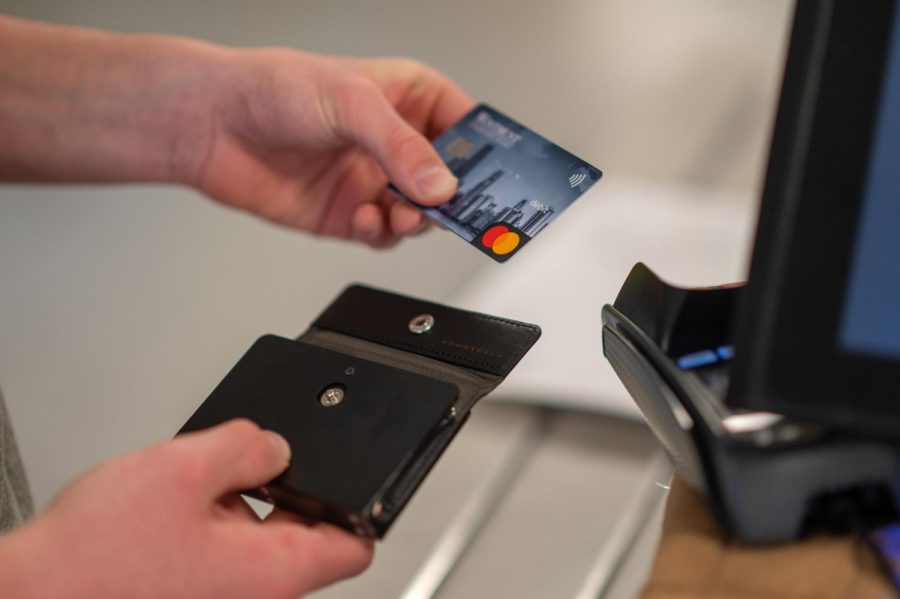Debit vs. Credit: Considering payment method pays off
GIVE (YOURSELF) SOME CREDIT: When paying for an item, it’s important to consider the costs and benefits of using a credit card or debit card.
April 17, 2023
When you buy a shirt from a store, take a friend out for lunch, or order a gift online, you are given a choice of payment method: cash, debit or credit. Cash is pretty straightforward — you pay the amount in cash and receive any extra in change. Many businesses are continuing to shift towards cashless transactions and therefore require the use of debit or credit card payments. Because of this, it’s important to understand the differences between them and how to responsibly use both.
When using a credit card, you are borrowing money from a bank that needs to be paid back with interest. When using a debit card, you are spending money directly from your own account.
Debit comes from the Latin word debitum, translating to “what is due.” Debit cards draw money from an existing bank account the user owns, where they can monitor expenses. The user can only spend the amount deposited in the account, and there are typically no rewards associated with a debit card, so the user doesn’t receive cash back or points. Debit cards don’t typically charge any fees to have or use, but a bank may charge fees to have a checking account. Fees may include minimum balance or transaction fees, which vary depending on the bank. Most banks offer low- or no-fee student checking accounts.
Credit comes from the Latin word creditum, translating to “that which is entrusted or loaned.” Credit cards give the user access to funds loaned by a bank or a line of credit, which the user has to pay back at regular intervals (usually once a month). The bank will charge interest unless the user pays the balance each month. Credit cards allow the user to build a credit record, dependent on on-time payments, that may be used to qualify for lower interest rates or fees, apply for a loan and gain more financial freedom in the future. The most prudent credit card users will pay their balance monthly so they do not incur additional fees and interest charges, which can accumulate quickly. Many credit card companies reward users with cash back or with miles or points toward other rewards.




















